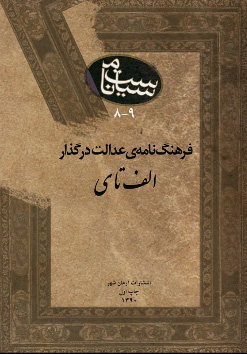ویژهنامه “انتشارات آرمانشهر” – شماره ۱۵۹ – ۱۶۰ سال هشتم خبرنامه حقوق بشر و جامعه مدنی آرمانشهر
Monday 11 April 2016
جهان
درهمین بخش: جغرافیا, جهان, حقوق بشر, حقوق بشر و جامعه مدنی, موضوعات, نشریهها
آخرین آپدیت ها را بهوسیله فید ما دریافت کنید: فید کل سایت
آخرین آپدیت نظرات سایت را دریافت کنید: RSS 2.0

